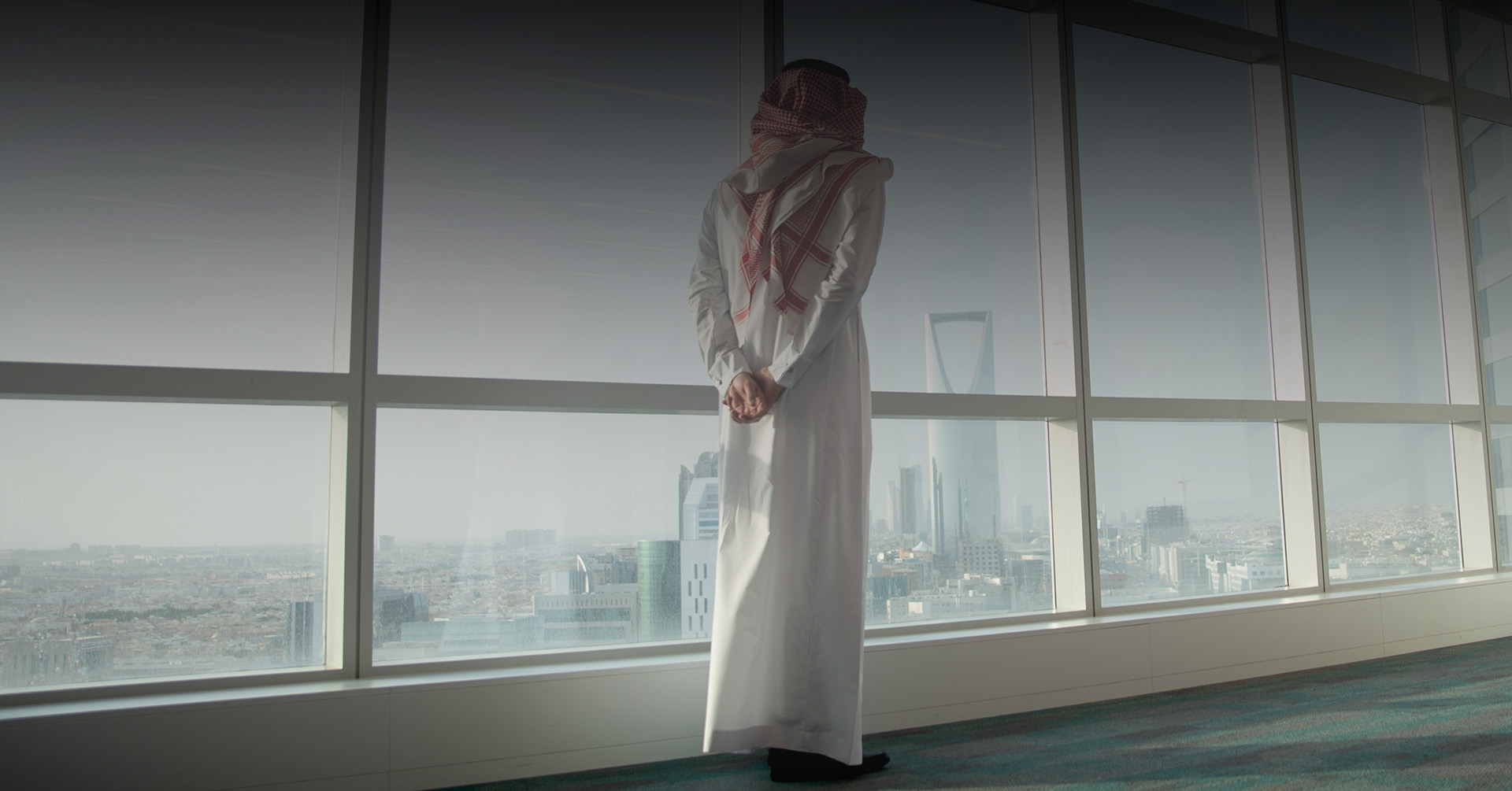RESILIENT PERFORMANCE
The year under review began on an optimistic note with plans for vaccine rollout globally, after successful trials. Nevertheless, the Group still had to cope with the impact of the COVID-19 pandemic. Business development and team development had to be carried out taking this reality into account. Coordination with relevant external stakeholders to meet targets had to be done under time pressure.
The pandemic was an unprecedented situation, which affected practically all companies and sectors. However the Exchange and its subsidiaries had the experience of having to cope with the pandemic, and maintain business continuity in 2020. The “work-from-home-culture” had been instilled and following from this, employees are permitted to work remotely 30 days of the year.
All hardware necessary was provided to employees and training was given where needed, for which the IT Department provided the necessary services. “Work-from-home” was introduced when the pandemic situation was acute. However, the fact that it has continued, reflects the impact it has had on flexibility in work practices. This has built resilience to enable business continuity in any future turbulent situations. The change in work culture, has also brought about a climate of mutual trust between the management and the employees. COVID-19 has been a learning experience, and has greatly increased our preparedness for future situations.
Adjustments to established work procedures had to be made in the post-COVID environment. However this was executed successfully with forward planning, crisis management, and use of technology. The Exchange made the maximum use of technology by hosting virtual seminars, workshops, and listing ceremonies.
Despite the pandemic the Exchange achieved an improved market performance as well as financial performance. The market performance in 2021, is demonstrated by the key market indicators, including the TASI Index, market capitalization, the value of shares traded and number of new companies listed. The performance of the MT30 futures launch which occurred in the middle of a bull run in the cash market, also demonstrated the robustness of the market.
COVID-19 had and continues to have a global impact. The fact that despite this, the Group was able to record an improving financial and operational performance is a tribute to its well established risk and security management functions. These functions have helped to build our resilience, and weather a period of uncertainty. The Group’s risk categorization already included pandemic related events under business continuity risks. However, risk registers were updated to take into account the possibility of unprecedented events related to COVID-19, with the relevant controls.
The Group has developed and brought on stream physical security precautions that are in accordance with the guidelines provided by the Ministry of Health and the Ministry of Human Resources Development. New threats also arose from the introduction of remote working for staff. New cybersecurity controls, which align with the Telework Cybersecurity Controls issued by the National Cybersecurity Authority (NCA), were introduced to mitigate threats emerging from the activation of the remote set-up for staff. Furthermore, relevant risk registers were updated to cover potential events relevant to security precautions.
The COVID-19 pandemic was an occurrence that impacted human resources, above all other factors. Changes have been made to HR policies and practices as a result, which are likely to last into the long term. As an example, the “MUTASSEL” application was launched as a remote working application for all employees. Our IT Department coordinated with all other departments to ensure that all employees have remote access. The experience of COVID-19 has increased our preparedness for other similar situations.
OUR CONTRIBUTION TO SUSTAINABILITY
Importance of sustainability
ESG consciousness and the concept of sustainable growth have moved to centre stage throughout the financial and commercial worlds. The issue figures prominently at all global political, social, financial, and non-governmental forums. Stock exchanges have historically played an important role in economic development as intermediaries in the process of capital provision. However, there is today a growing awareness of the unsustainability of the financial bottom-line focused approach. Hitherto, important players in the financial system- markets, listed companies and investors- have tended to take a short term view, and have not given much weightage to the environmental and social impact of industrial and commercial operations. However, we are now witnessing a changed scenario. A number of studies have concluded that it pays for companies to integrate environmental, social, and governance (ESG) considerations into their strategies. They have found a strong correlation between strong ESG performance, and improved cost of capital and financial performance. Stock exchanges word-wide are playing an important role in promoting sustainable development. Their role makes them well positioned to promote the cause of ESG in financial markets and among corporates.
The United Nations Sustainable Stock Exchanges (SSE), which Saudi Exchange became a member of in 2018, is a network which provides a framework for stock exchanges and market participants to discuss ESG issues, conduct advocacy on ESG, drive and evaluate ESG performance. The UN Sustainable Development Goals (SDGs) also provide a conceptual framework to steer ESG activities. The UNSSE has identifies six thrust areas where stock exchanges promote ESG. They are: encouraging investment flows towards achieving Sustainability Development Goals (SDGs) through financial products; improving the quantity and quality of disclosure on environmental and social data; guiding investors on the integration of sustainability into their decisions; introducing Board responsibilities related to environmental and social factors; and facilitating the training of market participants on sustainability topics.
The Group’s focus on sustainability
The Saudi Tadawul Group is playing a key role in Vision 2030 and the transformation of the Kingdom’s economy. A key pillar of the Financial Sector Development Program (FSDP), one of the supporting programmes of Vision 2030, is the development of an advanced capital market. Sustainable growth is part of the ethos of Vision 2030.
ESG information provides insight into the quality of corporate management, and the long term growth and profitability prospects of the Company. This has brought ESG disclosures to the forefront in the financial ecosystem. Stock exchanges are well positioned to drive and facilitate ESG disclosure by listed entities. The Exchange issued an ESG Guide in January 2021 to promote awareness of ESG.
The Saudi Tadawul Group has identified the following six of the 17 SDG goals as priority areas where it can make the most impact.
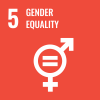
|
GENDER EQUALITY
Ensure women’s full and effective participation and equal opportunities for leadership at all levels of decision making in political, economic and public life. |

|
GOOD JOBS AND ECONOMIC GROWTH
Promote development-oriented policies that support productive activities, decent job creation, entrepreneurship, creativity and innovation, and encourage the formalization and growth of micro-, small-, and medium-sized enterprises, including through access to financial services. |

|
REDUCED INEQUALITIES
Improve the regulation and monitoring of global financial markets and institutions and strengthen the implementation of such regulations. |
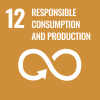
|
RESPONSIBLE CONSUMPTION
Encourage companies, especially large and trans-national companies, to adopt sustainable practices and to integrate sustainability information into their reporting cycle. |
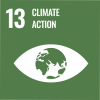
|
CLIMATE ACTION
Improve education, awareness raising, human, and institutional capacity on climate change mitigation, adaptation, impact reduction and early warning. |
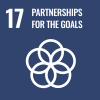
|
PARTNERSHIPS FOR THE GOALS
Strengthen the means of implementation and revitalize the global partnership for sustainable development. |
There are a number of processes and supporting activities that can facilitate implementation of the SDGs within the financial ecosystem. Analysis of the factors that impede market players’ acceptance of ESG criteria can help fill gaps and overcome barriers. There is much to be gained in this regard by studying the international frameworks, the experience of other markets, and networking with other related organizations globally such as stock exchanges, regulators, and industry associations.
The Group’s ESG Programmes
The ESG scenario is continuously evolving, both within the stock exchange domain and in the specific context of the Group. We develop and structure our ESG programmes around globally accepted frameworks. The Group’s ESG programmes are focused on four themes: economy, environment, education and community. Our ESG activities have included many programs, the most important of which are described below under the respective themes.
Economy
The Invest Wisely Program was initiated to instill financial literacy and investment awareness. The program is targeted at participants of varying levels and is adapted according to their levels. Students are given an opportunity to have a realistic experience of investing with actual market data, but using virtual money. The program has now been conducted for over five years. A total of seven workshops were conducted in 2021 for the public and for universities.
We also make a major economic contribution through Nomu, the parallel market for the small and medium enterprise (SME) sector. Nomu has tailored its listing requirements to the capabilities and needs of smaller companies. The development of Nomu dovetails with our commitment to SDG8 (Decent work and economic growth). SMEs are a major generator of economic growth, employment and are an outlet for entrepreneurial skills and innovation in emerging economies. At the end of 2021, 11 companies were listed on Nomu.
Community
The Group conducted a large number of Corporate Social Responsibility activities to benefit the underprivileged sections of the community. On the National Day a visit was conducted to the Disabled Children’s Association for the benefit of children who have special needs and who are affected by cancer.
A cash contribution was given to the charity; a video was created which was posted on our social media platform. As part of this programme, the children contributed their drawings to be used as printing cards by Group employees. The Group also supported the Ehsan Platform for charitable work by contributing Eid clothing for families in need.
The Group also has a strong commitment to the empowerment of women and gender equality. Out of the Group’s employees 22% are women and 9% of the C-level positions are occupied by women. Furthermore, 32% of employees are below 30 years of age, which demonstrates the importance we give to providing opportunities to our youth. We also sponsored a virtual event on Women's day "Ring the Bell for Gender Equality" which featured an employees' video and a screen saver to promote awareness on gender equality.
In 2021, the Saudi Tadawul Group, together with the World Federation of Exchanges, joined other global exchanges, in ‘Ring the Bell for Financial Literacy’. This is an initiative that takes place during the World Investor Week. Muqassa and Derivative Teams participated in this initiative.
Education
The Saudi Exchange launched the Graduate Development Program in 2019, with the objective of supporting educated Saudi Youth to be future leaders. It is specially designed for Saudi Youth who wish to pursue a career in the capital market. The program is of
nine-months duration and provides fast-tracked learning and development. It gives the graduate trainees a wide exposure and enables them develop their skills in a number of areas. The program encourages the students to come up with innovative ideas. The participants receive a competitive monthly salary and other benefits such as health insurance for themselves and their families.
During 2021, the Group signed a MoU with McKinsey & Co. to support the Quimam Fellowship Programme. Qimam is an initiative, which is a joint effort of a number of leading national and international companies that is targeted at developing promising university students from Saudi Arabia. Through this initiative the Group is investing in future leaders.

Ring the Bell for Financial Literacy
Environment
The Group seeks to minimize its direct environmental impact by reducing consumption and recycling. One initiative in this connection is the recycling of paper and plastic waste. We also make a contribution through our advocacy activities, for example by fostering environmental consciousness among listed companies. We also play a role by our membership in the Climate Change Advisory Group.
FUTURE DEVELOPMENTS
In 2021, Public Investment Fund (PIF) announced the intent to to establish Riyadh Voluntary Exchange Platform, an exchange for trading offsets and carbon credits in collaboration with Saudi Tadawul Group. This announcement is part of Saudi Tadawul Group's ongoing commitment to facilitate sustainable growth. Capital markets have an important role to play in driving green innovation and encouraging listed companies to consider their value and purpose beyond profit generation.


